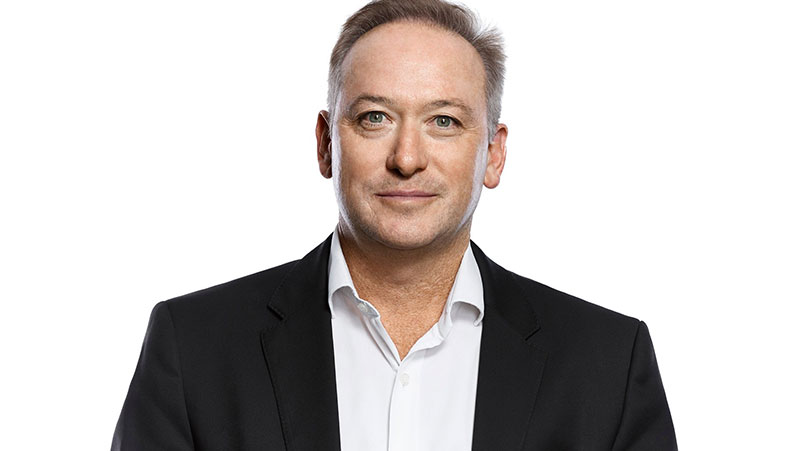GroupM taps PwC for sweeping overhaul in business transformation programme

After several internal assessments, WPP-owned media arm GroupM will undergo a major business transformation project, enlisting PwC to drive through change. Australian CEO Mark Lollback briefed the consulting giant, a sometimes rival to the ad agency sector, to re-engineer the media group's structure, find efficiencies and simplify a labyrinth of complex, overlapping processes. Job cuts, stress insiders, are not on the agenda.
What you need to know:
- GroupM is undertaking a major business transformation programme, appointing PwC to help drive the overhaul.
- Mi3 understands the work will focus on a broad restructuring, driving efficiencies and simplifying group processes.
- While an Australian initiative, the move ties into a wider transformation agenda for WPP globally - McKinsey has been appointed to lead that initiative - and GroupM internationally after the media arm appointed a new global CEO in 2019.
- The appointment follows assessments of GroupM and its agencies regarding brand health in the Australian market.
Under the microscope
WPP's media arm GroupM is set to undergo a major business transformation project, with local boss Mark Lollback appointing management consultancy PwC to help drive the strategy.
Multiple sources told Mi3 the primary focus of the project is on the wider operating structure of the GroupM business, alongside the centralisation of some agency functions.
The broader project will also look at driving greater efficiencies and simplifying processes within GroupM, which, in the past two months, has seen some of its key executive staff exit the business, including Chief Investment Officer Nicola Lewis and Chief Digital Officer Venessa Hunt.
Lewis was promoted to head of global growth for GroupM's addressable TV outfit, Finecast, and Hunt now leads the Premium Content Alliance’s new division, ThinkPremiumDigital.
Several media owners told Mi3 there was a "confusing line of communication" inside the organisation.
GroupM responded today, after initially declining to comment, with confirmation that PwC had undertaken its work in December.
Brand health
WPP insiders told Mi3 one of the drivers for the transformation project was linked to GroupM's current perception among marketers and brands. RECMA Australian media agency benchmarking data seen by Mi3 shows GroupM falling sharply to a distant third in the past two years behind OMG and Mediabrands. In response, the group described that data as "wholly inaccurate" as it does not submit any figures to RECMA.
Internal reviews were conducted in the second half of last year to assess where the GroupM brand, alongside its agencies, sat in comparison to its competitors.
One insider said the business had become frustrated after being left off key client pitch lists over the last 12 months.
Another claimed GroupM brands had fallen from their previous "tier one" status after the loss of major bank Westpac to Publicis, among other competitive challenges.
Global Essence: less media, more tech
While the project is related specifically to GroupM's local operations, the timing coincides with ongoing changes within the global business for both GroupM and WPP.
After nearly 18 months in the top job, Global CEO Christian Juhl is making moves on an international scale within the media business, which are expected to impact local operations.
Appointed in October 2019, Juhl moved across from the Essence brand, which he led during its 2015 buyout by WPP.
Essence, which boasts global clients such as telco BT, AirBnB, Argos, Google (global digital agency) and Sainsbury's, has not matched the success in Australia of its international network.
It is understood the agency is a likely focal point of GroupM's local transformation strategy.
Juhl has been vocal on his concerns surrounding the media investment business, telling UK trade title Campaign in November that “Group M wasn’t a great place to work a year and a half ago”.
The Global CEO has been adamant about pulling the business away from its traditional media agency roots to become "more like a software company".
“Essence was really formative for me in their use of technology and software as an OS [operating system] for the agency and I think Group M can do the same," he told Campaign. “Five years from now, if I am successful, Group M will look more like a software company than it will a media agency."
Given the current project underway in Australia and the plans already in play globally, GroupM AUNZ could soon be following the path of its local WPP parent, which under the leadership of local CEO Jens Monsees, has also undergone significant digitally-led changes.
New maths models
Juhl has also been outspoken on changing the mathematical models agencies and brands use to value media.
In a LinkedIn post from November 2020, he said the industry needs to evolve its valuation and measurement and place a premium not only on reach, viewability, and effectiveness but on social and environmental impact.
The post was in response to growing frustrations around the digital and social media economy, with Juhl calling out digital giants Facebook and Google over the monetisation of harmful user-generated content.
"In addition to cost-per-impression, we need to be measuring cost-per-social contribution. We need to start factoring a media placement's carbon footprint into our ad pricing," Juhl said.
"We need to support publishers that reach more diverse audiences, even if those publishers don't yet provide the level of audience data we've grown accustomed to. And we need to do this with more than the usual 10% experimental budget.
"This means the introduction of new tools that empower marketers to consider these sorts of ethical and moral consequences when buying media. Just as ESG investing and sustainable funds have become billion-dollar businesses on Wall Street, we believe that socially conscious media buying will find an enthusiastic audience among advertisers."

